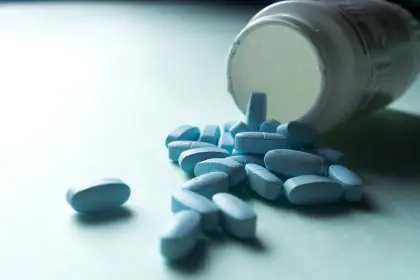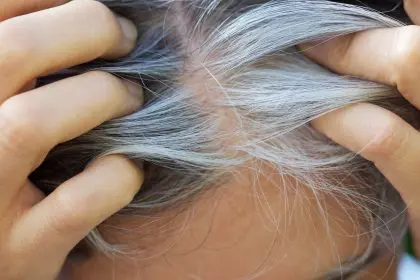That invigorating blast of cold water you’ve been using to start your mornings might be doing more than just waking you up, it could be putting dangerous stress on a heart condition you don’t even know you have. While cold showers have become a popular wellness trend promising everything from increased alertness to improved immunity, they’re also creating a perfect storm of cardiovascular stress that could be risky for people with undiagnosed heart problems.
The sudden temperature shock of cold water triggers an immediate and dramatic response from your cardiovascular system, causing your heart rate to spike, blood pressure to surge, and blood vessels to constrict rapidly. For someone with a healthy heart, this might just be an uncomfortable but harmless experience. For someone with hidden heart disease, it could potentially trigger a cardiac event.
What makes this particularly concerning is how many people have undiagnosed heart conditions without any obvious symptoms. You could have coronary artery disease, arrhythmias, or other cardiac issues that only become dangerous when your heart is suddenly stressed beyond its capacity. That cold shower might be the trigger that reveals a heart problem in the most frightening way possible.
Why cold water turns your heart into a racing engine
When cold water hits your skin, your body immediately activates what’s called the “cold shock response,” a primitive survival mechanism that prepares your body for potential hypothermia. This response causes your heart rate to increase dramatically, sometimes doubling within seconds, as your cardiovascular system works overtime to maintain core body temperature.
Your blood vessels constrict rapidly during cold exposure, forcing your heart to pump against much higher resistance. This sudden increase in vascular resistance can cause blood pressure to spike to dangerous levels, potentially straining weakened heart muscle or triggering problems in people with existing cardiovascular disease.
The sympathetic nervous system goes into overdrive during cold shock, flooding your system with stress hormones like adrenaline and noradrenaline. These hormones make your heart beat faster and more forcefully while also increasing the likelihood of irregular heart rhythms that could be dangerous in people with underlying cardiac conditions.
Your breathing pattern also changes dramatically during cold exposure, often becoming rapid and shallow or even causing you to gasp and hyperventilate. These breathing changes can affect oxygen levels and put additional stress on your cardiovascular system at the exact moment when your heart is already working harder than normal.
The hidden heart conditions that cold showers could unmask
Coronary artery disease often develops silently over years or decades, with many people having significant blockages in their heart arteries without experiencing obvious symptoms during normal daily activities. The sudden cardiovascular stress of a cold shower could potentially trigger chest pain, shortness of breath, or even a heart attack in someone with severe but undiagnosed coronary disease.
Arrhythmias, or irregular heart rhythms, can be triggered by sudden changes in heart rate and the flood of stress hormones that accompany cold shock. People with underlying electrical conduction problems in their hearts might experience dangerous rhythm disturbances during cold water exposure that could lead to fainting or more serious cardiac events.
High blood pressure that’s well-controlled with medication or lifestyle changes can suddenly spike to dangerous levels during cold shock, potentially causing stroke, heart attack, or other cardiovascular emergencies. Even people who think their blood pressure is under control might be at risk during the extreme stress of cold water exposure.
Heart valve problems that don’t cause symptoms during normal activities could become problematic when the heart is suddenly forced to work much harder against increased vascular resistance. The additional workload could reveal valve dysfunction that wasn’t apparent under normal circumstances.
Why your body’s alarm system might be broken
Many heart conditions develop gradually, allowing your body to adapt and compensate in ways that mask symptoms during normal activities. You might have significant cardiovascular disease but feel completely fine during your usual daily routine because your body has learned to work around the problem.
The gradual onset of many heart conditions means that warning signs like mild chest discomfort, subtle shortness of breath, or unusual fatigue often get attributed to aging, stress, or being out of shape rather than potential cardiac issues. By the time symptoms become obvious, heart disease may already be quite advanced.
Some people have a higher pain threshold or less sensitive cardiac pain receptors, making them less likely to experience the typical warning signs of heart problems. These individuals might have significant cardiovascular disease without experiencing the chest pain or discomfort that would normally prompt them to seek medical attention.
Certain medications, particularly those used to treat other conditions, can mask cardiac symptoms or interfere with the body’s normal warning systems. People taking these medications might not experience the typical signs of heart stress even when their cardiovascular system is being pushed beyond safe limits.
The perfect storm that cold showers create
Cold water exposure combines multiple cardiovascular stressors simultaneously, creating a perfect storm that could overwhelm a compromised heart. The rapid heart rate increase, blood pressure spike, vascular constriction, and hormone surge all happen at once, creating more stress than most hearts ever experience during normal daily activities.
The duration of cold shower exposure, even just a few minutes, can be long enough to maintain dangerous levels of cardiovascular stress in people with heart conditions. Unlike brief moments of exertion that the heart can usually handle, sustained cold exposure keeps the cardiovascular system in a state of high stress that could exceed safe limits.
The unpredictable nature of individual responses to cold shock means that some people might experience much more severe cardiovascular stress than others, even with the same water temperature and exposure duration. People with unknown heart conditions might be the ones who respond most dramatically to cold exposure.
The combination of physical stress from cold exposure and the psychological stress of the unpleasant sensation can compound the cardiovascular impact, creating even more strain on the heart than cold water alone would cause.
The warning signs that happen too fast to notice
During cold shock, your body’s stress response happens so quickly that warning signs of cardiac distress might be masked by the normal discomfort and physiological changes that everyone experiences with cold water. Chest tightness, shortness of breath, or irregular heartbeat could be dismissed as normal responses to cold when they might actually indicate dangerous cardiac stress.
The intense focus on enduring the cold water can distract you from noticing subtle signs that your cardiovascular system is being overstressed. The determination to complete the cold shower might override your body’s attempts to signal that something is wrong.
Many of the symptoms that would normally prompt someone to stop an activity and seek help, such as dizziness, nausea, or chest discomfort, can be attributed to the normal unpleasantness of cold water exposure rather than recognized as potential signs of cardiac distress.
The adrenaline and other stress hormones released during cold shock can actually mask pain and other warning symptoms, making it possible for someone to experience a cardiac event without immediately recognizing what’s happening.
Who should think twice before turning the temperature down
People over 40, especially men, have higher rates of undiagnosed coronary artery disease and should be particularly cautious about cold shower exposure, especially if they have risk factors like smoking, diabetes, high blood pressure, or family history of heart disease.
Anyone with known cardiovascular disease, even if it’s considered mild or well-controlled, should consult with their healthcare provider before starting cold shower routines. What seems like a minor heart condition during normal activities could become problematic under the extreme stress of cold water exposure.
People taking medications for blood pressure, heart rhythm problems, or other cardiovascular conditions should be aware that cold shock could interfere with their medication’s effectiveness or create dangerous interactions with their treatment regimen.
Individuals with diabetes, kidney disease, or other conditions that can affect cardiovascular health often have higher rates of undiagnosed heart problems and should approach cold shower trends with extra caution.
The safer alternatives that still provide benefits
Gradual temperature reduction over several minutes allows your cardiovascular system to adapt more slowly to the cold, reducing the shock response while still providing many of the purported benefits of cold exposure. Starting with lukewarm water and slowly decreasing the temperature gives your heart time to adjust.
Shorter exposure times of 30 seconds or less can provide the alertness and potential metabolic benefits of cold water while minimizing the duration of cardiovascular stress. Brief cold exposure is less likely to overwhelm a compromised heart than extended cold showers.
Cold water on extremities only, such as cold foot baths or brief hand immersion, can provide some of the benefits of cold exposure while avoiding the full-body shock response that puts the most stress on your cardiovascular system.
Alternating between warm and cool water, rather than going straight to cold, can provide temperature contrast benefits while avoiding the extreme shock response that creates the highest cardiovascular risk.
When to seek medical clearance before cold showering
If you have any known risk factors for heart disease, including family history, high blood pressure, diabetes, smoking history, or elevated cholesterol, you should consider discussing cold shower safety with your healthcare provider before starting this practice.
Anyone who experiences chest discomfort, unusual shortness of breath, dizziness, or irregular heartbeat during or after cold water exposure should stop the practice immediately and seek medical evaluation to rule out underlying cardiac conditions.
People who haven’t had a cardiovascular evaluation in several years, especially if they’re over 40 or have cardiovascular risk factors, might benefit from a cardiac assessment before engaging in activities that place significant stress on the heart.
If you’re starting any new exercise program or wellness routine that involves significant physiological stress, including cold exposure, it’s worth discussing with your healthcare provider whether additional cardiac screening might be appropriate.
The risk-benefit calculation you need to make
While cold showers may offer some health benefits, the cardiovascular risks for people with undiagnosed heart conditions could outweigh these potential advantages. The popularity of cold shower trends doesn’t make them safe for everyone, and individual risk assessment is crucial.
Many of the benefits attributed to cold showers, such as improved alertness and potential metabolic effects, can be achieved through other methods that don’t involve the same level of cardiovascular stress. Exercise, proper sleep, and other lifestyle factors might provide similar benefits with lower risk.
The social media promotion of cold showers often emphasizes benefits while downplaying or ignoring potential risks, especially for people with underlying health conditions. It’s important to get medical information from healthcare providers rather than wellness influencers.
Your heart doesn’t care about wellness trends
The recent popularity of cold showers and other cold exposure practices has created a situation where people might be unknowingly putting themselves at risk for serious cardiac events. Your heart doesn’t distinguish between intentional cold exposure and accidental hypothermia, it just responds to the physiological stress.
If you’re going to experiment with cold showers, start slowly, keep exposures brief, and pay attention to how your body responds. Any concerning symptoms should prompt you to stop the practice and consult with a healthcare provider about your cardiovascular health.
The safest approach to any wellness trend that involves significant physiological stress is to discuss it with your healthcare provider first, especially if you have any risk factors for the health conditions that could make the practice dangerous. Your morning routine shouldn’t become a cardiac stress test.


















